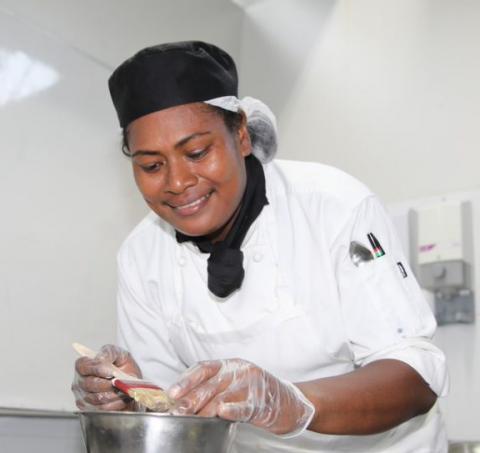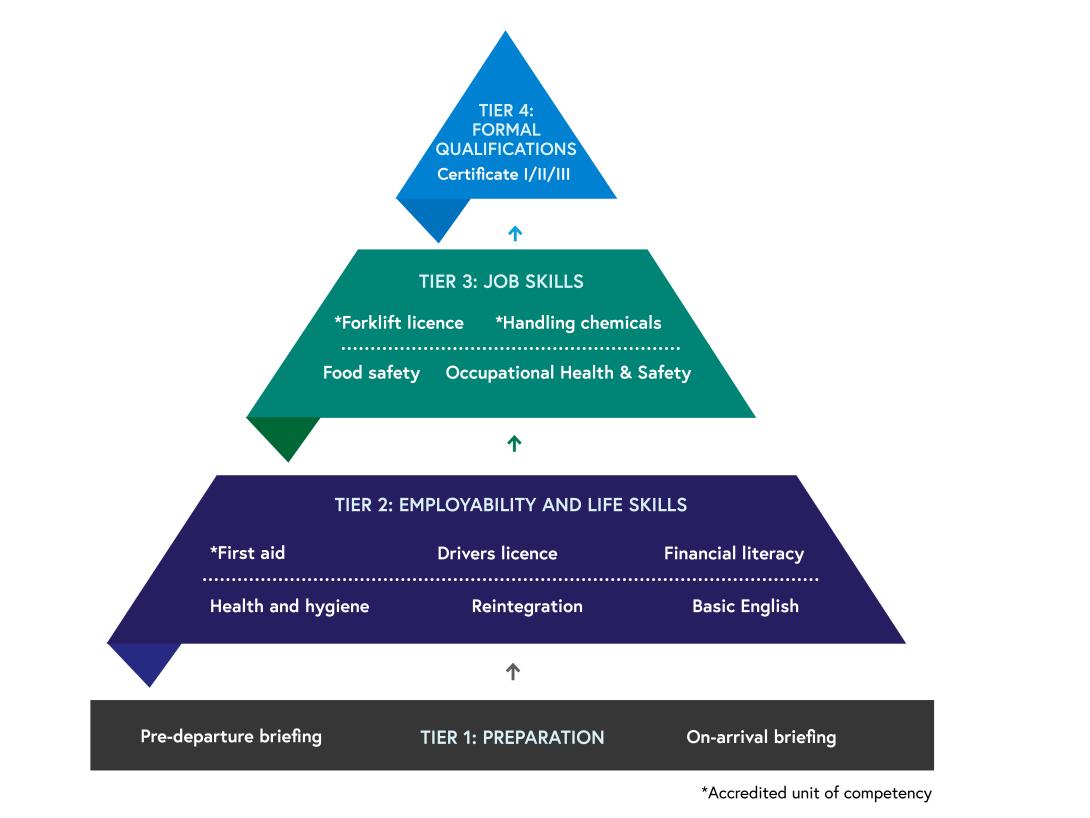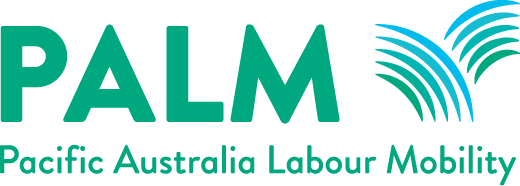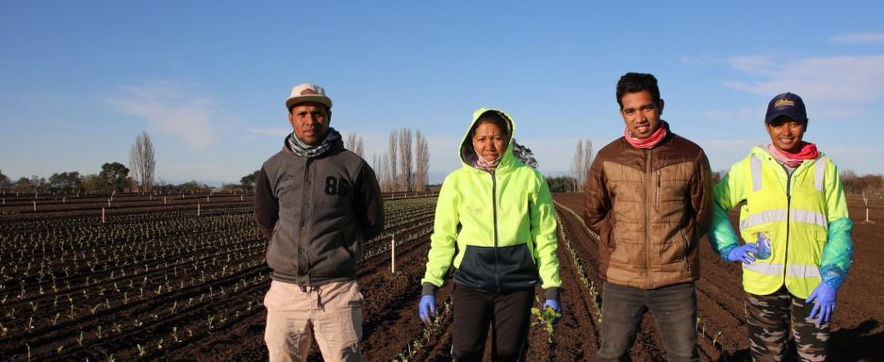
The Pacific Australia Labour Mobility (PALM) scheme Skills Development Program provides funding to support training for workers from the Pacific and Timor-Leste while they are working in Australia.
All PALM scheme employers, including direct employers and host employers (who recruit PALM scheme workers through a labour hire company), are eligible to apply for funding.
Training can increase workers’ technical knowledge and abilities, such as forklift driving or food safety training, and increase lifestyle skills such as English language or health and wellbeing skills.
The program’s goal is to improve workers’ skills in the workplace, increase productivity for employers and provide skills and abilities that will benefit the workers and their communities when they return home.
Who is eligible for skills development funding?
Funding is available for all PALM scheme employers participating in both the short-term and long-term programs.
This includes direct approved employers as well as ‘host’ employers that recruit PALM scheme workers via a labour hire company.
Types of training
The following categories are types of training PALM scheme workers might participate in:
- Tier 1: preparation including pre-departure and arrival briefings (funding does not apply to this training).
- Tier 2: employability and life skills such as first aid, driver’s licence, financial literacy, health and hygiene, basic English and reintegration.
- Tier 3: job skills such as forklift licence, safe handling of chemicals, food safety, occupational health and safety.
- Tier 4: formal qualifications including Certificate I, II and III training in relevant areas.
Please note: the types of training indicated in tiers 2-4 are examples only – this is not a complete list of approved training. In addition to recognised training programs that are delivered by a registered training organisation (RTO), the employer can develop a tailored training program suited to specific business needs. This training may fall into tier 2 or 3 depending on the type of training and the capabilities it is addressing.
Identified training programs should be included in the application for funding support and will be assessed in line with the criteria. The employer is also required to source the service providers for all training.

Developing tailored training programs
The PALM scheme Skills Development Program can provide funding for tailored training to meet specific workplace needs.
When developing a tailored training program, employers may wish to consider:
- Flexible delivery: training could be locally provided at a convenient location (or via online facilities) and at times that work for the employer and the worker. In most cases, it is expected that training takes place during normal working hours and the worker is remunerated accordingly, i.e. the worker should not be financially disadvantaged by undertaking workplace skills training. For more information, please contact (PALMcapability@dewr.gov.au).
- Demand-driven options: relevant and required training that meets workplace needs, and is meaningful for both employers and workers. Note that a training program may address multiple workplace needs and life skills, not a single skill or capability.
- Value for money programs: the cost of training must be reasonable and reflect market value.
The Department of Employment and Workplace Relations (DEWR) capability team can advise PALM scheme employers on how to engage with training organisations or community-based organisations (e.g. a local neighbourhood centre) to design their own worker development programs.
Training costs incurred by employers for internally conducted training are unable to be supported by the skills development program, unless the training body is operating independently on a separate ABN. Contact (PALMcapability@dewr.gov.au) for more information.
How to find a training provider
The Australian Government’s Your Career website (yourcareer.gov.au/learn-and-train/myskills) contains excellent resources and information for employers wishing to find and compare training organisations in their region, or to provide online training.
The site also contains useful information from local councils and business associations about training providers in different regions.
How funding works
PALM scheme employers must apply for funding on behalf of their workers and must source their own training providers
The funds contribute to the costs of both accredited and non-accredited training for workers. The amount of funding varies according to the type of training (refer to the pyramid diagram above and table below).
Funding is provided on a reimbursement model. Employers fund the cost of training and will be reimbursed upon submission of relevant documents. Further information is available in the frequently asked questions.
Formal qualifications that attract other government funding will not be eligible for funding through the program.
DEWR has a monthly pool of up to $20,000 that can be allocated to skills development training. Applications are assessed according to the specified criteria and funding is allocated at DEWR’s discretion. If the $20,000 monthly pool is exceeded, applications will roll over to the following month.
PALM scheme employers can apply for funding for tiers 2 (employability and life skills), 3 (job skills) and 4 (formal qualifications).
There are different funding and cost-sharing arrangements in place for each tier, as shown in the table below.
| Tier | Funding arrangements |
|---|---|
| Tier 1: preparation | Sending countries deliver the pre-departure briefing, employers deliver the on-arrival briefing. No DEWR funding is provided for these. |
| Tier 2: employability and life skills | DEWR: 100% of costs (up to $600 per worker per year). |
| Tier 3: job skills | Employer: 60% of costs. DEWR: 40% of costs (up to $300 per worker per year). |
| Tier 4: formal qualifications | Employer: 50% of costs. Please note: Worker training for formal qualifications should be directly related to the business’ employment requirements and not impact a worker’s average minimum hours (30 hours per week). |
How to apply
Applications are to be submitted at least 2 weeks before the stated training date. This is to allow sufficient time for the assessment and approval process.
Please submit applications using the form linked below. A skills development application guide is also linked below. Completed forms should be emailed to (PALMcapability@dewr.gov.au).
Skills development application form and guide
PALM scheme employers will be notified of DEWR’s decision on their funding application within 7 working days of submission.
PALM scheme employers with unsuccessful applications can request feedback from DEWR to help refine and resubmit an application.
For more information on the application process, please email (PALMcapability@dewr.gov.au).

